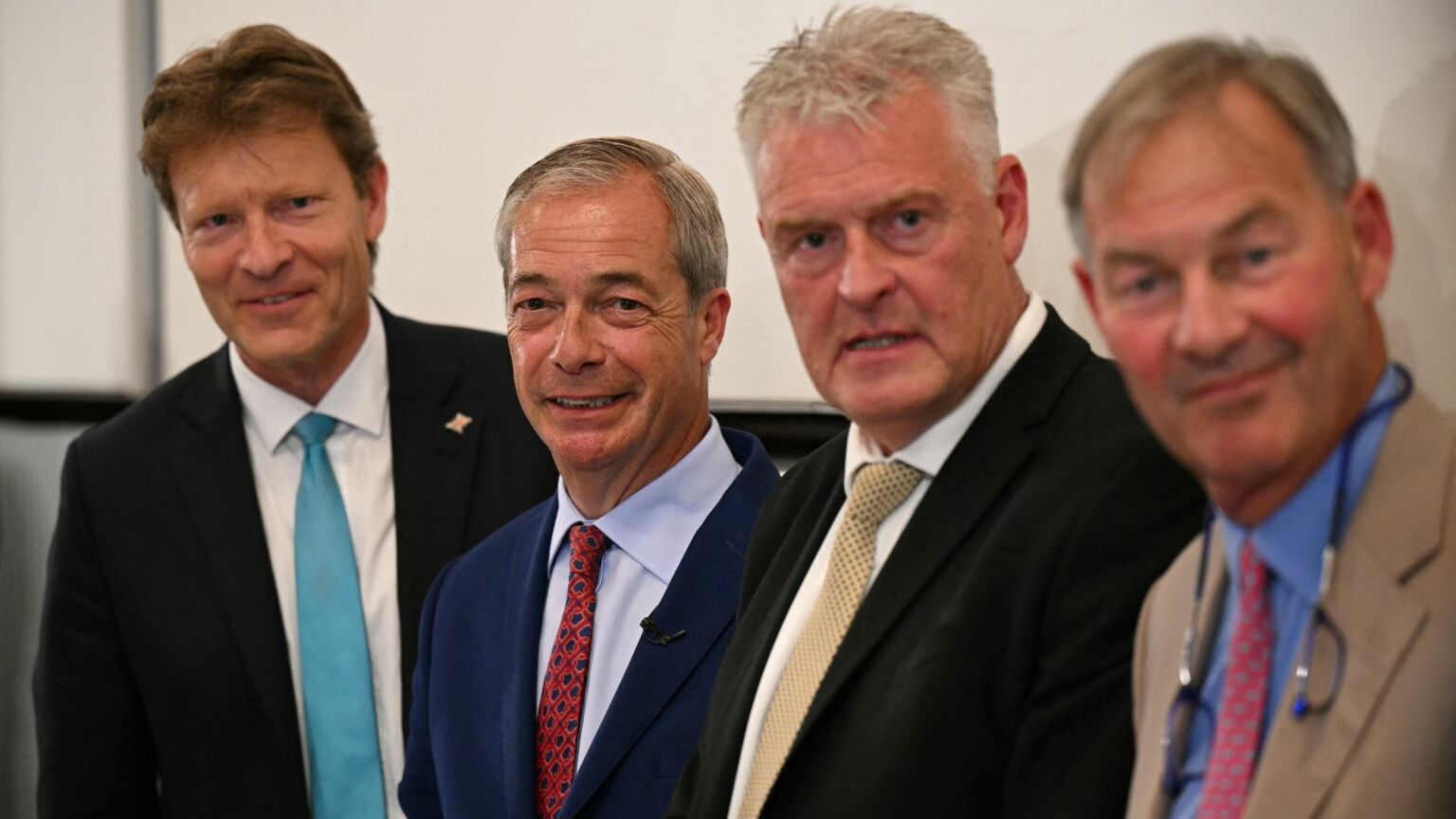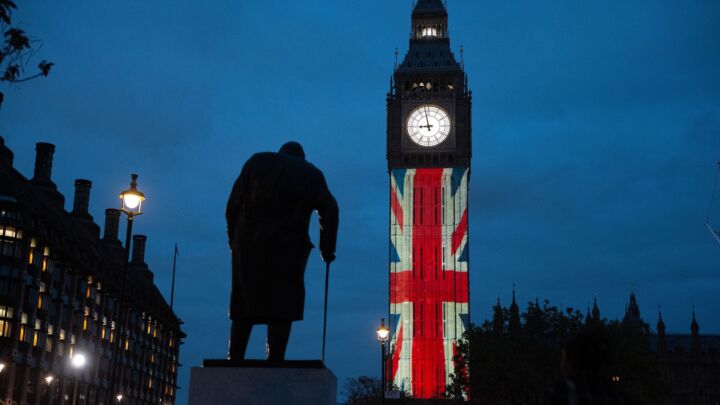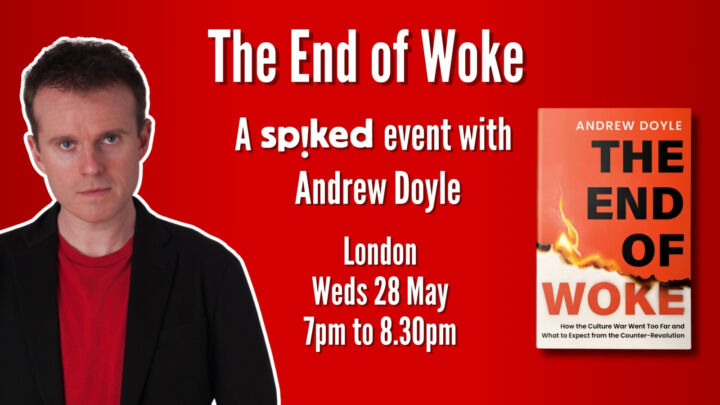Why we must have proportional representation
Labour’s phoney landslide has made a mockery of the principle of ‘one person, one vote’.

Want to read spiked ad-free? Become a spiked supporter.
After such a dispiriting and lacklustre General Election campaign, fought between two empty suits, it can be easy to lose sight of the radicalism of democracy. Indeed, the idea that all citizens must have the equal right to determine the affairs of the nation, that everyone’s views and interests should be taken into account, is downright revolutionary. After all, the vote of the plumber and the professor, builder and banker, trainee and TikTok influencer all have the same weight. Or, at least, they should, in a properly democratic system.
If you had any doubts that the UK’s first-past-the-post system for electing our MPs is dysfunctional, those ought to have been shattered by last week’s election results. This was Britain’s least-representative General Election of the modern democratic era.
Thanks to our wildly disproportionate voting system, Labour managed to surf to a landslide victory on a wave of mass apathy. Its 411 seats – 63 per cent of those in the House of Commons – were won with just 34 per cent of the vote. Labour’s majority of 172 is among the largest in postwar history, but it was built on the lowest vote share that has ever led to a majority. Plus, this was all on a historically low turnout of around 60 per cent, meaning Starmer was voted in by about 20 per cent of the potential electorate.
Just how distorted these results are becomes even clearer when you bring in other parties. Nigel Farage’s Reform UK won 4.1million votes (14 per cent of the total), but just five seats. Ed Davey’s Liberal Democrats, meanwhile, won almost 600,000 fewer votes than Reform, yet are now sitting pretty on a massive 72 seats in the Commons. The Greens were also hard done by, with their national vote of 1.8million delivering just four MPs. According to the Electoral Reform Society, a proportional system would have given 94 seats to Reform and 42 to the Greens. Labour would have been reduced to a mere 236 – 90 short of a majority.
The current make-up of parliament makes a mockery of the principle of one person, one vote. To elect a Reform MP, it took 820,000 votes. To elect a Labour MP, it took just 23,000 votes. This is the injustice laid bare: the average Reform voter was 35 times less influential than the average Labour voter. The first-past-the-post system is literally disenfranchising millions of our fellow citizens.
Of course, we do not know for certain how people would have voted under a different system. Polls before the election suggested that one in five people were planning to vote tactically. In other words, around 5.8million Britons likely plumped for what they saw as the least-worst option, rather than voting for a party that best represented their wishes, their values and their interests. They knew in advance that first-past-the-post would block their favoured choices.
This is why we urgently need proportional representation (PR). It is the only way to ensure that all votes are treated equally and that, whichever constituency you live in and whichever party you support, your vote will count the same.
There have been many weak arguments put forward for PR over the years. Some say we need it to encourage coalitions and a cosy consensus of the centre – as if we haven’t had enough of that already, with a Labour-Tory party duopoly that, for all the shouting, disagrees on very little. No doubt this explains why so many anti-democrats – such as the criminally misnamed Lib Dems – are strangely open to a more proportional system. (Although, I wonder if Ed Davey’s party will now change its tune, given it did so well out of first-past-the-post this time around.)
No, the reason we need PR is not to encourage yet more consensus in the Westminster village, but to open things up. To properly enfranchise voters and to allow new parties to challenge the dismal status quo and the two-party system that sustains it. You can see the appetite for it. Even with first-past-the-post propping up their respective positions, Labour and the Tories still slumped to their lowest combined vote share since 1945 in this election. The public is desperate to sweep away the two empty shells of what used to be mass parties.
A radical shake-up of the system could inject a new dynamism into politics. New forces could bubble up that we haven’t even conceived of yet. New movements that speak to the new divides in society. New parties can represent constituencies that have been summarily excluded. The transformative potential is enormous.
So long as we are shackled to first-past-the-post, the democratisation of Britain will remain tragically incomplete.
Fraser Myers is deputy editor at spiked and host of the spiked podcast. Follow him on X: @FraserMyers.
Picture by: Getty.
Who funds spiked? You do
We are funded by you. And in this era of cancel culture and advertiser boycotts, we rely on your donations more than ever. Seventy per cent of our revenue comes from our readers’ donations – the vast majority giving just £5 per month. If you make a regular donation – of £5 a month or £50 a year – you can become a and enjoy:
–Ad-free reading
–Exclusive events
–Access to our comments section
It’s the best way to keep spiked going – and growing. Thank you!









Comments
Want to join the conversation?
Only spiked supporters and patrons, who donate regularly to us, can comment on our articles.